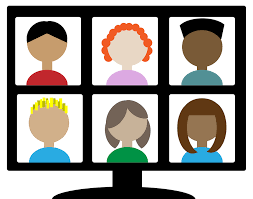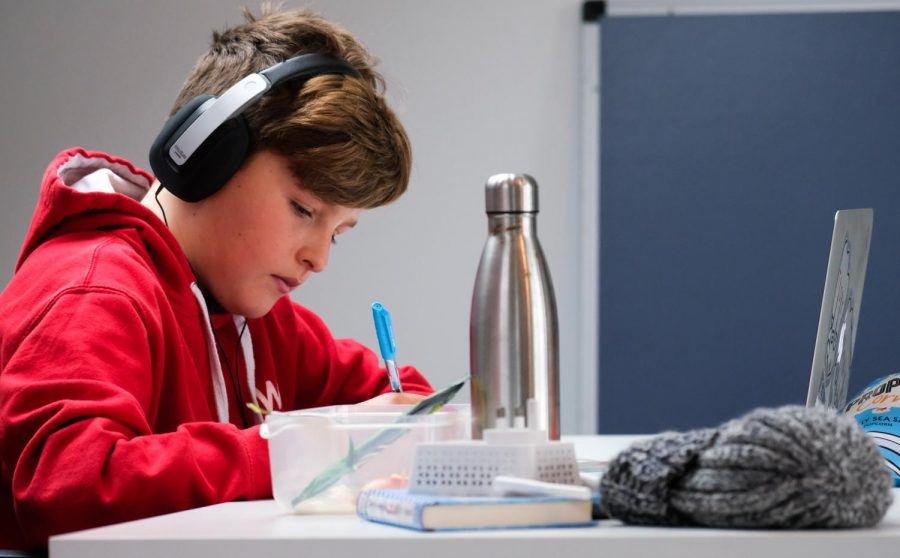A new pandemic is plaguing A-West and it is not COVID-19
Interviews in this article will remain anonymous.
A pandemic has hit A-West, and it has nothing to do with COVID-19. This year’s transition into hybrid and fully remote learning has caused an increase in cheating and overall student laziness. Even though students face unprecedented challenges, they should not resort to cheating.
A simple Google search using the words “cheating in online classes” produces 26,500,000 results in less than half a second. The results that appear are numerous websites on how to cheat, whether teachers or technology can monitor a student cheating, and tips and tricks to cheat on online classes. Accessibility to all kinds of information has become easier with the new heavy reliance on technology.
Although the question must first be asked: what constitutes cheating?
“Plagiarism or asking friends for work [is cheating],” says a senior at A-west.
“I think if you look up answers that is cheating,” says a junior at A-west.
Some websites most used by students to cheat include, Mathway, Sparknotes.com, and CourseHero.
In a survey done by the International Center for Academic Integrity, 64% of students admitted to cheating on a test, 58% admitted to plagiarism, and 95% of students admitted to some form of cheating out of 70,000 high schoolers. While cheating has always been an issue, online education has increased the issue.
A more localized poll completed by 108 A-west students showed that 63 students cheat on online classes, and 100 people knew someone besides themself who cheated. When students were asked how they felt when they cheated, almost all students admitted that they felt bad, and morally knew it was wrong.
One student, a senior, explains why she cheats.
“School is overwhelming. I don’t have time for everything and working with other people is easier,” she says, “My brother cheats because he has a ‘think smarter not harder’ mindset. Neither of us wants to put in the work.”
Some high school students have made it clear that their cheating stems from the mental toll of online classes in this new world. A transition to new online technologies, lack of normalcy, and the global pandemic is affecting the mental health of students.

“I feel like my teachers lack empathy for the situation we are all in. I am doing my best, but my best doesn’t feel like enough,” says a sophomore at A-west.
USA Today released an article about the negative impacts online learning has on youth’s mental health.
As found in the article, “As the pandemic drags on, it’s clear that not all kids are all right. Nearly 3 in 10 parents said their child is experiencing emotional or mental harm because of social distancing and school closures, according to a nationwide Gallup poll in June,”
Many interviewed students who admitted to cheating, claimed that it was due to their mental health struggles with online learning.
On the opposing side of the issue students who said they did not cheat explained that it was a matter of ethics.
“I don’t cheat on my classes because regardless of if my teachers can tell because it doesn’t feel morally right to me. I would rather show what I know than take the easy way out,” says a senior at A-west.
“I think cheating is wrong. I think that it [cheating] is lazy and doesn’t achieve anything,” says another A-West senior.
Students face a range of technology that aims to prevent cheating in the online education model. This ranges from locked-down browser tests, plagiarism checkers, and teachers asking students to keep their cameras on when in a zoom or google meet, but even that seems to not stop students.
“I just point my camera up so they can’t see me anyway, and they still have no idea,” says a junior.
Cheating is plaguing schools everywhere but is strikingly evident right here at A-west.
“Honestly, cheating is the least of my worries in the world right now,” says a sophomore.
Even though students face a new world with new challenges, cheating is still not justified.

Maddie Adams is a senior at Arvada West. Although this is her first year in journalism, she has previously worked on other publications in yearbook. She...



